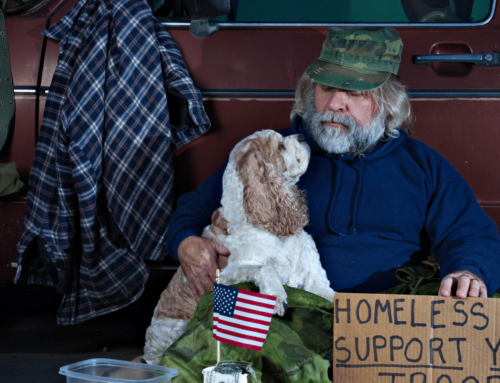A Guide to Accessing Non-VA Community Healthcare Services for Veterans
Veterans often rely on the U.S. Department of Veterans Affairs (VA) — and, more specifically, the Veterans Health Administration (VHA) — for their medical needs. However, there are circumstances where veterans may need or prefer non-VA health care services. This comprehensive guide aims to help veterans understand what non-VA health services look like, how to access them, and the benefits they offer.
What Are Non-VA Health Services?
Non-VA health services for veterans encompass a wide range of medical care options available outside the Veterans Affairs healthcare system. These services can include routine medical care, specialized treatments, mental health services, and emergency care provided by community healthcare providers.
The purpose of non-VA healthcare services is to ensure that veterans have timely access to quality care, especially in situations where VA facilities are not readily available or when specific medical needs cannot be met within the VA system.
According to the VA, approximately 39% of veterans utilize non-VA health care services each year. The VA’s budget for community care has increased significantly, reflecting the growing reliance on non-VA providers. In 2021, the VA allocated over $18 billion for community care programs.
Why Opt for Non-VA Health Services?
Choosing non-VA health services can offer several benefits, such as:
- Accessibility: Veterans living in remote areas may find it easier to access community healthcare providers.
- Timeliness: Non-VA health care can reduce waiting times for appointments and treatments.
- Specialization: Some medical conditions require specialized care that may be more readily available in the community.
- Convenience: Utilizing local providers can be more convenient for veterans with mobility issues or transportation challenges.
How Do I Get Non-VA Health Care?
Accessing non-VA health care services requires understanding the eligibility criteria, the process for obtaining care, and the options available. Here’s a detailed step-by-step guide to help veterans navigate this process.
Step 1: Determine Eligibility
Veterans need to meet certain eligibility criteria to access non-VA health services. The primary programs that facilitate non-VA care include:
- Veterans Choice Program (VCP): Designed to provide veterans with options for community care when VA services are not available within a reasonable timeframe or distance.
- Community Care Program: Replaces the VCP, expanding access to community care under specific circumstances.
Veterans must generally be enrolled in the VA healthcare system and meet one of the following criteria:
- The veteran lives more than 40 miles from the nearest VA medical facility.
- The veteran experiences wait times exceeding 30 days for a VA appointment.
- The veteran needs services not offered by the VA.
- There are specific medical needs that necessitate community care.
Step 2: Obtain a Referral
Once eligibility is confirmed, the next step is to obtain a referral for non-VA health care. This typically involves:
- Consulting with a VA healthcare provider.
- Discussing the medical need for non-VA care.
- Obtaining a referral or authorization from the VA.
Step 3: Find Non-VA Health Care Providers
Veterans can find non-VA health care providers through the following methods:
- VA Community Care Network (CCN): This network includes various community providers who have agreements with the VA to deliver care to veterans.
- Local Health Care Providers: Veterans can seek care from local doctors, specialists, or hospitals that accept VA referrals.
Step 4: Schedule an Appointment
After finding a suitable provider, veterans should:
- Contact the chosen healthcare provider to schedule an appointment.
- Provide the necessary VA authorization information.
- Ensure that the provider coordinates with the VA for billing and records.
Step 5: Coordination and Follow-Up
Effective coordination and follow-up are crucial for seamless care:
- Coordinate With the VA: Ensure that all medical records and information are shared between the VA and the community provider.
- Follow Up on Treatment: Veterans should keep the VA informed about their treatment progress and any additional needs.
Navigating the process of accessing non-VA health services for veterans can seem daunting, but understanding the steps involved can simplify the experience. By determining eligibility, obtaining referrals, finding suitable providers, and ensuring effective coordination, veterans can access the care they need when they need it most. With the growing emphasis on community care, veterans have more options than ever to receive timely and specialized medical services outside the VA system.
By leveraging these resources and understanding the process, veterans can confidently access the healthcare services they deserve, ensuring their well-being and health are prioritized.
National Veterans Homeless Support (NVHS) seeks to eliminate homelessness among veterans in Central Florida and nationwide. NVHS takes a proactive, intervention-based approach to homelessness by meeting homeless veterans where they are and helping them from there. Through programs such as Search and Rescue Outreach, NVHS helps homeless veterans get the supplies they need to survive, connects them with support and resources, and helps them transition off the streets and into temporary or permanent housing. Some of our programs also include art therapy to help veterans heal. If you’re able, consider supporting our mission by donating or signing on as a volunteer.





